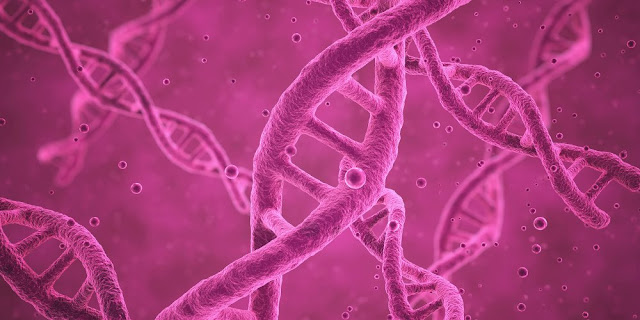Epigenetics; A Study Of How Cells Control Gene Activity Without Changing DNA Sequence
 |
| Epigenetics |
Epigenetics is a study of stable changes in cell function that do not involve alterations in the DNA sequence. It is the study of how behaviors and environment can cause changes that affect the way genes work. Unlike genetic changes, epigenetic changes are reversible and do not change the DNA sequence, but they can change the way the DNA sequence is read by the body. Epigenetics explains how early experiences can have lifelong impacts. The genes that children inherit from the parents (biological) provide information that guides their development.
For instance, how tall they could
eventually become or the kind of temperament they could have. Epigenetics
processes also lead to individual differences in appearance, physiology,
cognition, and behavior, the group of traits known as the phenotype.
Epigenetic changes
are necessary for typical development and health, but they can also cause
disease. Epigenetic
changes are responsible for human diseases, such as Prader-Willi syndrome, Angelman's
syndrome, Fragile X syndrome, and various cancers. They can also be responsible for some
disease states.
The word ‘Epigenetics’ refers to stable changes in gene activity that don't
involve a change to the DNA sequence itself. In other words, it's about the
ways both environment and lifestyle can affect whether or not a specific gene
gets turned on and off. Unlike genetic mutations, which alter DNA sequences,
epigenetic changes alter how a cell reads a gene's code. A gene's code
determines what protein is made from it, so changing the function of a protein.
But it doesn't physically change the gene's sequence, only its access to a
cell's machinery for making proteins.
Epigenetics changes can last a lifetime and be
passed on to offspring without altering the sequence of genes, but they can
also be reversed or reversible. For instance, some cancer cells have increased
DNA methylation, which can prevent certain genes from working properly.
As with other genetic
alterations, epigenetic ones may cause disease. For instance, a mutation in the
gene that produces tumor-fighting proteins makes individuals more likely to get
certain types of cancer. However, the cause of these epigenetic changes isn't
always known.
Incorrect epigenetic marks can result
in birth defects, childhood diseases, or symptoms of diseases in other interims
of life. Epigenetics mechanisms also
regulate development and adaptations during the life of an organism, and their
alterations can result in various diseases/disorders such as cancer. A rapidly
growing field, epigenetics, suggests that both nature and nurture interact and
are equally important. It is an emerging area of research that shows how
environmental influences, children’s experiences, actually affect the
expression of their genes.
The Japanese Society for Epigenetics
was established in 2006 in order to integrate researchers who had shared a
common interest in epigenetics. The Society is engaged in various
activities such as holding annual meetings and issuing newsletters with the aim
of developing epigenetics research and promoting mutual exchange among members.


Comments
Post a Comment